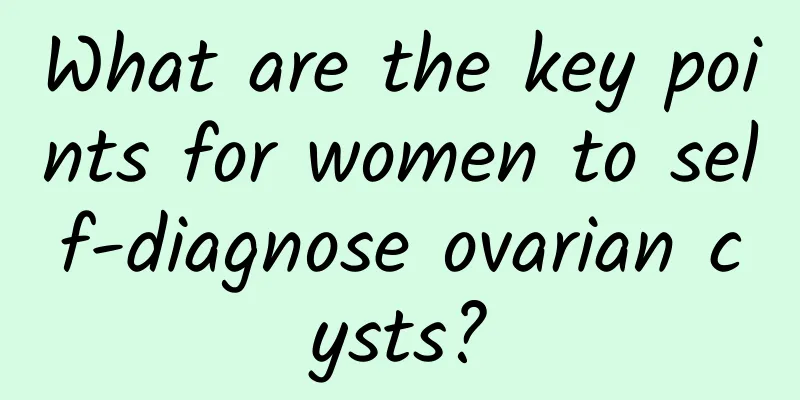What medicine is good for endometriosis?

|
Medical treatments for endometriosis mainly include oral contraceptives, progestins, and gonadotropin-releasing hormone (GnRH) agonists. Oral contraceptives such as ethinyl estradiol and desogestrel can help relieve pain and reduce menstrual flow and are a common initial treatment. Progestin drugs, such as medroxyprogesterone acetate and danazol, work by inhibiting the growth of the endometrium. GnRH agonists such as leuprolide and goserelin temporarily simulate menopausal status by reducing estrogen levels in the body, thereby relieving symptoms. The choice of these drugs usually depends on the severity of symptoms and the patient's fertility plan. Each regimen needs to be evaluated and adjusted by the doctor according to the patient's specific situation. Symptoms of endometriosis vary from person to person and include pelvic pain, dysmenorrhea, menorrhagia, infertility, and more. In addition to medication, lifestyle adjustments can also help relieve symptoms. Reducing stress, eating a balanced diet, and exercising moderately can help improve overall health. At the same time, some women may choose to supplement nutrients such as omega-3 fatty acids and vitamin E, which studies have shown to have potential anti-inflammatory effects. Nonsteroidal anti-inflammatory drugs (NSAIDs) such as ibuprofen can be used to relieve pain, helping to reduce inflammation and temporary pain. However, persistent or severe symptoms require prompt medical attention, and the doctor may recommend surgical treatment, such as laparoscopic surgery, to remove or reduce ectopic endometrial tissue. Symptoms of endometriosis vary from person to person and include pelvic pain, dysmenorrhea, menorrhagia, infertility, and more. In addition to medication, lifestyle adjustments can also help relieve symptoms. Reducing stress, eating a balanced diet, and exercising moderately can help improve overall health. At the same time, some women may choose to supplement nutrients such as omega-3 fatty acids and vitamin E, which studies have shown to have potential anti-inflammatory effects. Nonsteroidal anti-inflammatory drugs (NSAIDs) such as ibuprofen can be used to relieve pain, helping to reduce inflammation and temporary pain. However, persistent or severe symptoms require prompt medical attention, and the doctor may recommend surgical treatment, such as laparoscopic surgery, to remove or reduce ectopic endometrial tissue. When choosing drug treatment, special attention should be paid to possible side effects and contraindications, especially long-term use of certain hormone drugs may lead to osteoporosis and other problems. Regular medical follow-up and testing are necessary to monitor the efficacy of the drug and adjust the treatment plan. Patients should follow the doctor's advice to individualize the treatment plan, adjust the dosage or choose different treatment combinations as needed, and communicate with the doctor at any time during the process to cope with possible changes, to ensure the best treatment effect under planned control. |
<<: Is amenorrhea a symptom of irregular menstruation?
>>: What causes dysmenorrhea to cause vomiting and fainting?
Recommend
What should I do with uterine fibroids? Misunderstandings about the treatment of uterine fibroids
Uterine fibroids are still a relatively common tu...
Women preparing for pregnancy should be alert to endometrial tuberculosis
Endometrial tuberculosis is a relatively common g...
Which treatments for vulvar leukoplakia have a thorough therapeutic effect?
The key to the treatment of female vulvar leukopl...
Lower abdominal pain is a typical early symptom of adnexitis
Lower abdominal pain is a typical symptom of adne...
How to treat female cervical erosion? The most effective treatments for female cervical erosion
It is troublesome for women to suffer from cervic...
Is it serious to have a malignant ovarian cyst?
Ovarian cysts are a very common female disease, a...
Can I get pregnant during adenomyosis?
When the endometrial glands and stroma grow ectop...
If you want to lose weight effectively and long-term, choose the Mediterranean diet!
Considering your health in the second half of you...
Chocolate cyst rupture signs
The signs of chocolate cyst rupture usually inclu...
What are the symptoms of pelvic effusion in women?
What are the symptoms of pelvic effusion? The cli...
What are the self-care measures for pelvic peritonitis?
Everyone knows that the occurrence of pelvic peri...
Lose weight and strengthen your body! Drink Soy Milk for Health in Four Seasons
It is the peak season for soy milk weight loss ag...
Patients with Trichomonas vaginitis should avoid sexual intercourse
Trichomonal vaginitis is a common gynecological d...
What are the specific dangers of pelvic inflammatory disease?
Pelvic inflammatory disease can be divided into c...
Chinese yam and goose meat soup can be used for dietary therapy of patients after abortion
Yam and goose meat soup can replenish qi and stre...









